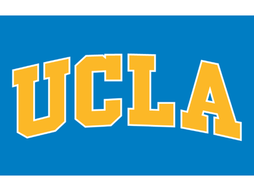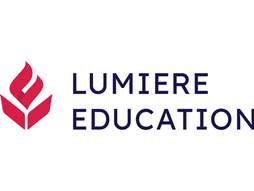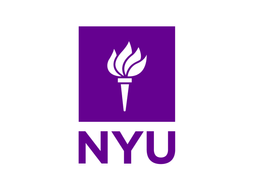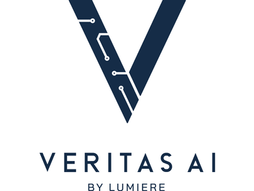10 Ways ChatGPT Will Change College Admissions
Over the past few months, I’ve spoken with over a dozen college admission counselors and admission officers about what they see ChatGPT doing to college admissions. In parallel, I’ve watched hundreds of high school students using ChatGPT for their writing.
What’s clear to me is that ChatGPT will affect the college admission process in the US. The model’s ability to mimic human-level writing is clear, and our ability to decipher AI and human-written text is limited. So, as admissions officers see more students’ essays, they will begin to question the validity of what they are seeing. This will cascade.
I studied machine learning as an undergraduate at Harvard and spent years working as a data scientist - now, I help run one of the world’s largest high school research programs, Lumiere, where I see our students apply to the world’s top universities. In this piece, I outline some of the ways that I see ChatGPT changing the admission process.
But, before I get into the implications of ChatGPT on college admissions, let me step back and share a bit about what ChatGPT is and where it is going.
What is ChatGPT, and what are large language models (LLMs)?
ChatGPT is a user-facing chatbot that is written using GPT models built by OpenAI. OpenAI is one of the leading AI development companies - though they are not the only ones. Competitors include Google’s Bard, Anthropic AI’s Claude, Baidu’s Ernie, etc. ChatGPT model came out in December 2022 and a GPT-4 powered version came out in March of 2023.
These models are called “large language models”, which essentially means that they take a massive amount of textual data (the internet) and then build a model with millions or billions of parameters. The model’s goal is to predict the next set of logical texts given a prompt. This simple behavior can produce a pretty broad set of texts, such as literature reviews (I review how well ChatGPT does writing a literature review research paper here), a blog, or a poem. In the context of college admissions, ChatGPT does a remarkably good job of writing college essays.
Our belief - students will innovate first using ChatGPT, and admission offices will follow.
One of our beliefs is that students will be the first to use these new technologies. Institutions will try to catch up and so will, over time, adapt to these changes.

Our model of change.
What do admission offices do? How will ChatGPT affect them?
It’s important to start with what admission officers are trying to do by selecting students. In a nutshell, Admission Officers (AOs) are trying to build a class of people that they think will excel in their schools and will raise the reputation of the school after graduation. Many schools, like Harvard, believe that having a diverse set of students provides a better learning environment for students. So, they will select a broad set of students who have different expertise (sometimes called spikes) to make up their class.
At highly selective universities, admission officers are up against a formidable task. Their job is to identify which are the best students in the application pool - often selecting fewer than 5%. Meanwhile, the students, on the other side of the market, are trying to convince the admission officers that they are the best applicants. That means that students will highlight awards they’ve received, difficult things they’ve accomplished, and ways they stand out from their peers. Essentially, the student side tries to convince (or deceive) the admission side into believing that they are better than other candidates.
So, we have a natural tension - admission officers want to pick the best students, and students want to showcase that they are the “best.” In economics, this could be described as a market for lemons, where the seller (the student) has more information than the buyer (the admission officer). And so, an arms race emerges - with students doing more things to showcase their ability and admission officers working harder to decipher what is real (a true signal) and what is fake.
Enter ChatGPT and generative AI.
ChatGPT’s ability to write - strong, creative, and getting better
One of the tools that admission officers have used to assess whether a student is strong is their admission essay. This essay serves two core functions - I call these the “content” function and the “craftsmanship” function. First, the essay is meant to share the student’s story and background (I’ll call this the “content” function). Second, the essay signals the student’s writing competence and creativity (I’ll call this the “craftmanship” function). ChatGPT, while not able to provide the “content” information about a candidate, does have the ability to write creatively. You can ask ChatGPT to mimic the style of other writers, build out funny passages, or to even write jokes for you. So, if a student uses this tool to write, they may be able to mimic some of the “craftsmanship” function of a student who is a more talented or creative writer than they are. Thus, there is less signal in the admission essay.
Can we detect if student admission essays were written by AI?
I’ve seen many college counselors advise that you should not use ChatGPT to write your admission essay. The logic is that this type of writing is easy to detect by AI. The reality is that there are models to assess AI written text – OpenAI has a model that they released in January of 2023 to do just this. But, these models are somewhat limited. Open AI reported that they could detect “26% of AI-written text (true positives) as “likely AI-written.”

Open AI’s text classifier is good but not perfect For practical and ethical reasons, we don’t think it’s a good idea for students to wholesale use ChatGPT to write their essays – practically, it will likely produce overly generic essays, and its ethically dubious for a student to pretend that they’ve written an essay if it was written by AI. But, students will likely still use AI to help iteratively build their essays. There will be some students who copy-paste from ChatGPT and submit (not a great idea) - those students will be caught. But, I think more likely students will have an iterative process with ChatGPT-like-tools to build something that is authentically theirs. Admission offices will likely need to adapt to that reality.
Here are my 10 predictions for how ChatGPT will change the college admission process.
10 Ways ChatGPT Will Change College Admissions
Let’s start with a few short-term things that will happen (in the order of the next 1-2 years).
1. Some students will use ChatGPT to help co-write their admission essays & supplemental sections
The most obvious way that the college admission process will change is that students will use ChatGPT or other models to help co-write their essays. Most students are morally opposed to having ChatGPT write their entire essay for it. In a survey of college students, about half thought that using ChatGPT on their coursework was cheating. But, the reality is that ChatGPT is a useful tool that students can (and should) use. I predict that the vast majority of students will continue to write their most important essays themselves (90+%). Of that 90%, a good half or more will use ChatGPT in some way to help them get started - brainstorming ideas - and to help refine their essays. You can’t use ChatGPT to replace the content function, as described above, but it can and will be a useful tool for many students as they write. There will be some students, however, who give a few creative prompts, do a quick plagiarism check, and then submit that essay.
Another very clear use case for ChatGPT and other tools will be to polish certain sections of writing. I think the activities list is the clearest - where there is almost no ability for AI detectors to detect AI-written content in short paragraphs (in general, it is harder for these AI detectors to detect AI-written text in short paragraphs).
2. Universities & students will use AI checker tools to identify AI-written content and blacklist students who fail
Admission offices are thinking about AI actively, and they are trying to figure out what to do with it. The most knee-jerk reaction for admission offices - which most will take - is to try to figure out who is using AI and then blacklist those candidates. This is a form of status-quo bias and I believe that these checks will be added to new “plagiarism checker” tools. Most likely, centralized tools like the Common App will incorporate some type of AI-text checker into their assessments. The risk for students is clear - if you are caught using AI to build your essays, you will likely be blacklisted by schools. This will not prevent students from using AI (especially those who aren’t as strong writers), but it will serve as a deterrent.
Finally, I expect that some universities will place a “ban” on using AI in college application essays. This is similar to the above reaction, which is focused on keeping the traditional essays as a valuable signal of student ability.
Over time, AI will develop to become better writers, make fewer factual errors, and be able to adapt to an individual’s writing style more easily. That means that there will be some medium-term time horizon changes to the college admission process.
The below changes I expect to happen over the next 2-4 years, so a medium-time horizon
3. Universities will place less emphasis on the college essay (2-3 year time horizon), potentially turning it live
AI tools will reach a point where students who are not using AI to help draft their essays will perform worse than a student that does. As of writing, for the top students, this is not the case. A very strong, creative writer will write a better, more personal essay than a student co-composing with ChatGPT. But, that dynamic may change over time.
The function of the essay, as we mentioned before, is to provide content in the context of the student and to showcase the student’s ability to write and think creatively. It will become increasingly difficult to use an essay to assess the craftsmanship section. As well, universities may believe that stylistic writing is simply less important just as hand drawing is less important for graphic designers. Both of these will devalue the essay in the process.
Some universities may choose to do live writing assessments. This would help universities evaluate the craftsmanship of the student more easily. This will likely lead to #4.
4. Universities will value standardized testing more
As essays decrease in importance, admission officers will need to rely on other indicators to identify high-ability students. I think there will be a movement towards third-party assessments (e.g., winning competitions, publications, etc.), and the most ready-made version of this is the standardized test.
There are headwinds against standardized tests now - we write about the test-optional trend here. But, I believe that universities will seek out other signals of student competence, and likely standardized tests will fill that void.
5. Universities will value external “markers” of success more (e.g., GPA, winning competitions, publications, etc.)
In addition to standardized tests, universities will rely on other external markers of success to prove the student’s uniqueness and ability. This means that recognized competitions, publishing your high school research, or winning awards will have a stronger signal than they did. There will be a trend towards established legitimacy markers as other forms of assessment (e.g., evaluating an essay) become less valuable.
6. Universities will value interviews more and see them as a “sanity check”
We may see another trend where universities value live interviews more. In the admission system in the United Kingdom (particularly Oxford and Cambridge), students must sit for an interview to be accepted. This interview has a very significant role in the students' admission decisions to these universities. For US universities, the interview is pretty much a sanity check - is the student who they say they are or not? This will become more important as universities begin to doubt the authenticity of what they are reading.
The live interview may serve a more important verification purpose for students. If an essay seems too good to be true, what is it like meeting the student? How do they act? These interviews may be live for wealthy and international schools (like Harvard) or they may be recorded using video tools.
7. College Admission Counselors / Independent Education Consultants will use ChatGPT to provide feedback on essays
How will ChatGPT change the role of Independent Educational Consultants? For an increasing number of students, they and their families turn to private counselors to help them navigate the admission process. I think that the demand for these services will remain strong - but, you may see ChatGPT and similar tools begin to serve as aids for these consultants. Many college counselors may spend less time editing essays and more time focused on helping students strategize their academic path.

Over time, the role of the admission counselor will change as well
8. AI College Admission Counselors will emerge (and they will be adopted by schools first)
In parallel, there will be an emergence of AI-based college admission counselors. I believe that these AI admission counselors will provide a low-cost alternative to the independent educational consultants noted above.
For the most part, I imagine that these will primarily serve price-sensitive families and may be adopted by schools to supplement their existing counseling teams. I don’t think this will disrupt the need for independent, human counselors. But, over time they may grow to be a useful, additional tool for families as they navigate the US admission process.
9. Some admission offices will use AI to process applications
Many admission offices will also see the value of AI to quickly summarize, process, and rank applications (many of them already do). In our conversations with admission officers, we’ve found that they spend - on average - 7 minutes per initial application before taking a call on it. Many schools also rely on external “readers” to process the large sum of applications before they get to admission committees. To reduce costs and speed up processing time, admission offices will use AI tools to get rid of clear rejects and give a first opinion. This will help reduce costs for admission offices and potentially free up time for more substantive debate on candidates.
For branding reasons, I expect most universities will continue to insist that “a human has reviewed every application.” But, this might obscure that AI is playing a role in the background to help sift through clear rejects and free up more time for admission officers to have debates on candidates.
10. Universities will revise their course offerings and some majors may become more (or less) competitive
Finally, a final implication of tools like ChatGPT is that it has the potential to replace some fields and types of work. Fields that involve things like translation, codified knowledge (e.g., accounting, medicine), or creative writing may become less popular, while fields that involve critical thinking, scientific reasoning, machine learning, and system building may become more important. This will have implications for the competitiveness of these majors in the admission process.
ChatGPT is here to stay. I think it’s important to address it head-on - to use it, play with it, find out its limitations, and stay close to its developments. So, whether you’re a student, a parent, or a counselor, it will be important to understand how to use the technology to your advantage.
If you’re interested in building an independent research project, consider applying to the Lumiere Research Scholar Program. I helped found the program as a Ph.D. student at Harvard Business School.
Last year, we had over 3000 students apply to the program and do projects across computer science, biology, economics, physics, and - yes - even AI. You can apply here.
Stephen is one of the founders of Lumiere and a Harvard College graduate. He founded Lumiere as a Ph.D. student at Harvard Business School. Lumiere is a selective research program where students work 1-1 with a research mentor to develop an independent research paper.
Image source: ChatGPT logo









